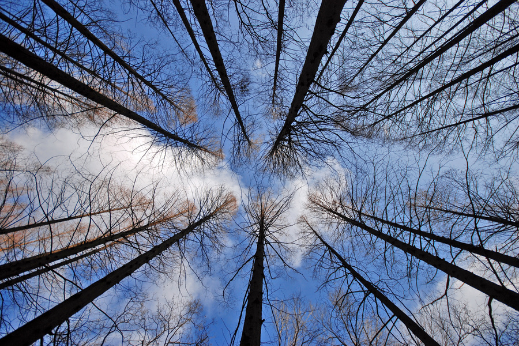
Our 6 tips to connect with nature
So it's mental health awareness week, and the theme is connecting to nature. Countless studies are linking deeper connections with nature to better all-round wellbeing. Take a look at the following 6 tips we've put together to help you do this more often.
Nature looks different to all of us
Not everybody can live in the open countryside, it's important to remember nature looks different to us all. If you're an urbanite, prioritise time in your garden or communal garden or public parks. Also, make a point of taking a day trip once a month out of town to the coast or countryside.
Bring nature into your home:
- Incorporate as many house plants into your home as you can - This not only looks beautiful, but it is backed by science. When we breathe, we take in oxygen (O2) and release carbon dioxide (Co2). Plants can mop up this carbon dioxide and release oxygen using the reverse mechanism.
- Sleep with your windows open - This helps to lower your room temperature and reduce Co2 levels, promoting better sleep quality. Also, open the house up as much as possible upon waking to encourage fresh airflow through the house. Cold, you say!? That's what thick woolly jumpers and slippers are for ;-)
- Get a pet - This is certainly not for everyone and requires a big commitment. However, having pets in the house or in the workplace has been shown to reduce anxiety levels and promote calmness. Caring for another living thing also directly connects us back to nature.
- Diffuse natural botanicals to enhance different senses. Get a cold air diffuser and consider adding a few drops of essential oils. Things like lemongrass, peppermint and rosemary will help you get focused and energised. On the other hand, frankincense, bergamot and lavender will make you calm and sleepy.
Where possible, try to eat local seasonal produce:
- Attending things like farmers markets or buying direct from local producers can give a sense of community and support. Plus, this connects us to nature because we become more aware and conscious about our surrounding environment and what it is capable of providing us with at certain times of the year given the right care.
Use all of your senses to embrace what is around us:
- Smell - That feeling you get when you take in the smell of fresh-cut grass, just after a storm or simply the scent of wildflowers on a walk
- Sight - Who doesn't like a sunset!? Also, resist the temptation to always wear sunglasses when it's sunny… Our eyes have special photoreceptors that play a vital role in human physiology and health. Wearing sunnies or contacts means we block this.
- Touch - Feeling the warm sun on your skin and walking on sand or grass barefoot are probably two of the most relaxing and calming things we can do as humans.
- Listen - Being more conscious of natural sounds like birdsong or bees humming. On the other hand, limiting noise pollution from busy roads or construction work is key.
- Taste - Enjoy the natural flavour of food. The sweetness of honey, the citrus of lemons, the bitterness of wild rocket, and the savoury, creamy flavours from meats and fish.
Exercise outside more often:
- Don’t get us wrong, we love hitting the iron in the gym! However, exercising outside brings its own unique set of benefits, so you should try and balance your gym regimen with plenty of work outdoors
- Some studies have shown that exercising outdoors can lower blood pressure and heart rate, making activity feel less strenuous and potentially needing less recovery time.
- The combination of fresh air and exposure to natural sunlight contributes to better all-round sleep quality. There's a reason you sleep like a baby after those long hikes out in the open air.
- IT'S FREE!! Say no more!
- Some of our favourite ways to exercise outdoors are mountain biking, sprints at the track, hill splints, hiking, low-intensity steady-state running (45mins+) and conditioning circuits using kettlebells, skipping ropes, and body exercises.
Do your bit to protect what we have:
- Recycling - It's really surprising how poorly educated we are in the UK compared to other countries when recycling. The basic things are what count most here - Separating out plastics, cans, bottles from paper and card and making sure that we are rinsing any food residues from its packaging, which may prevent it from being recycled.
- Walk, bike, bus, train, carpool rather than use your personal car to travel everywhere - This isn't always possible, but the more we can do this, the bigger impact it has.
- Doing your bit and contributing makes you feel good, and it also breeds a sense of understanding and consciousness of the bigger picture.
So there you have it, our simple steps, to connect to nature and the role it can play in all round wellbeing and mental resilience.